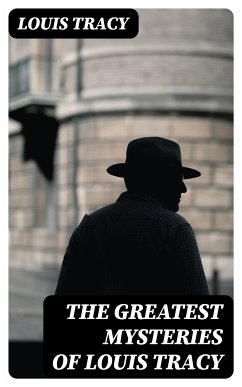
The Adventures of Louis de Rougemont (eBook, ePUB)

PAYBACK Punkte
0 °P sammeln!
In "The Adventures of Louis de Rougemont," the author weaves a captivating narrative that blurs the lines between reality and fantasy, blending autobiography with adventure in a strikingly vivid literary style. This memoir chronicles Rougemont's purported travels and experiences in the Australian wilderness, where he claims to have encountered indigenous tribes, survived shipwrecks, and lived among kangaroos. His flamboyant storytelling is marked by grandiose claims that invite skepticism, yet the text reflects the Victorian era's fascination with exploration and the exoticism of the unknown, ...
In "The Adventures of Louis de Rougemont," the author weaves a captivating narrative that blurs the lines between reality and fantasy, blending autobiography with adventure in a strikingly vivid literary style. This memoir chronicles Rougemont's purported travels and experiences in the Australian wilderness, where he claims to have encountered indigenous tribes, survived shipwrecks, and lived among kangaroos. His flamboyant storytelling is marked by grandiose claims that invite skepticism, yet the text reflects the Victorian era's fascination with exploration and the exoticism of the unknown, prompting readers to question the boundaries of truth in travel writing. Louis de Rougemont, originally born as Louis de Rougemont in Switzerland, embraced a life driven by adventure and wanderlust that eventually led him to Australia. His experiences, whether wholly authentic or embellished, were influenced by the European imperial imagination and the cultural currents of the late 19th century, where narratives of discovery were immensely popular. Rougemont's background as a performer and lecturer allowed him to engage audiences with enthralling tales, undoubtedly shaping the dramatic flair evident in his writing. This book is highly recommended for those fascinated by the interplay of myth and reality in literature, as well as enthusiasts of adventure narratives. Rougemont's work serves not only as a window into personal adventure but also as a commentary on the perceptions of the exotic and the unknown during an era of colonial expansion, making it a compelling read for scholars and casual readers alike.
Dieser Download kann aus rechtlichen Gründen nur mit Rechnungsadresse in A, B, BG, CY, CZ, D, DK, EW, E, FIN, F, GR, H, IRL, I, LT, L, LR, M, NL, PL, P, R, S, SLO, SK ausgeliefert werden.













